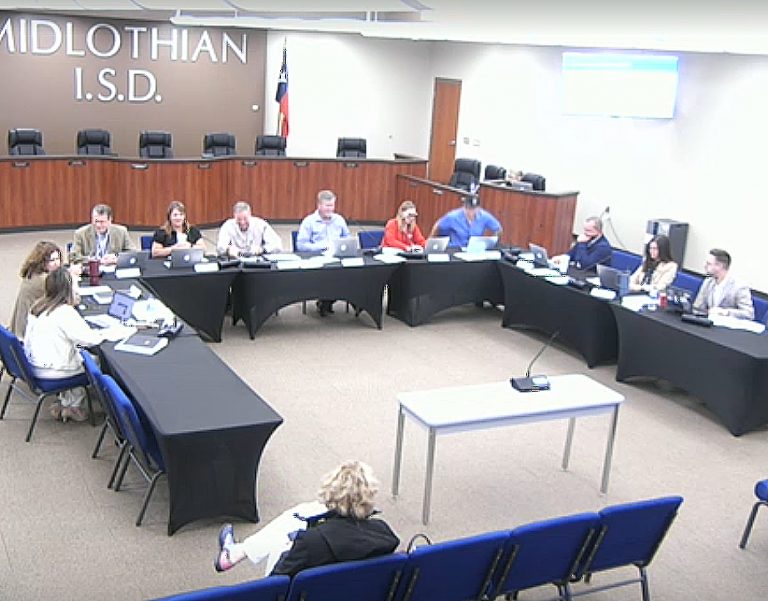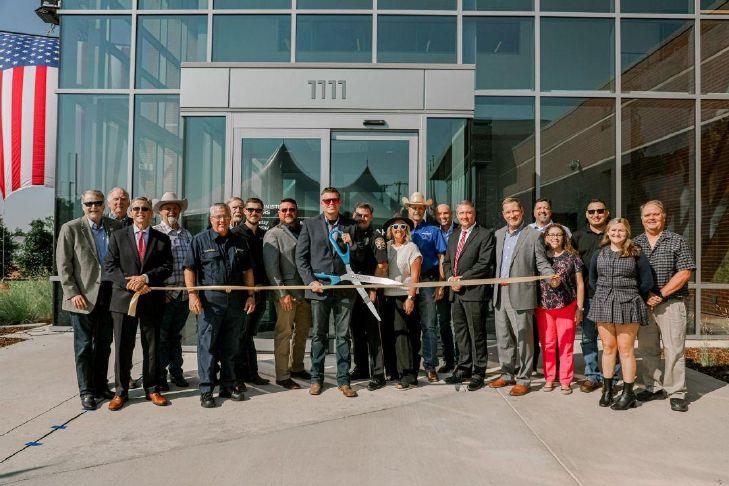The first day of school in Midlothian ISD is Aug. 13, and the Board of Trustees raced to tie up some final loose ends at a special meeting on July 30.
Two important topics of discussion were the possible calling of a voter-approved tax rate election, or VATRE, and a $383 million bond referendum to fund needed facilities. Both items are being considered for placement on the Nov. 4 election ballot.
No action was taken on either at the special meeting, but trustees leaned toward a vote for a public hearing and possible ballot placement at the next regular monthly meeting on Aug. 18. Publication of a proposed tax rate for the 2025-2026 school year of 69,08 cents for maintenance and operations, and 41 cents for interest and sinking, was approved.
The district last year asked voters for a similar VATRE that would have shifted three cents per $100 taxable valuation from the interest and sinking fund to the maintenance ad operations fund. The referendum failed by a 57-43 margin.
On the proposed VATRE, the district is once again proposing to shift three cents from I&S to M&O — so-called “three golden pennies.”
An approved VATRE would raise additional available revenue for the district by about $5.2 million in state and local funding, MISD assistant superintendent of business and operations Dr. Rebecca Metzger said, which would bring MISD into the black. Metzger later said a two-cent VATRE shift would be sufficient to balance the budget.
Metzger said the certified tax numbers released July 25 from the Ellis Appraisal District show significant increases in both existing and new property tax values, but even with the new revenues, the district is still facing a $3.3 million deficit.
Trustee John Knight said that while the MISD tax rate might rise this year, tax bills for property owners should be lower by an average of $500 because of a state constitutional amendment on the November ballot to increase homestead exemptions.
Knight noted that in previous years, the reverse was true, because tax rates dropped but bills rose anyway because of increasing values.
“This year the value went up, the tax rate went up, but because of other things in place, your tax bill will go down regardless,” Knight said.
The district will carry over about $842,000 from the 2024-2025 budget, Metzger added, which will boost the bottom line for the new school year.
Superintendent Dr. David Belding told trustees that a number of features of HB2 will not kick in until the 2026-2027 school year, which will boost funding for the future.
The board also heard from Josh McLaughlin of BOK Financial, the district’s bond consultant, on the district’s capacity to place a bond issue on the ballot. McLaughlin confirmed that the $383 million bond recommended by the MISD Facilities Planning Committee on July 21 was well within the district’s bond capacity.
The bond would fund a number of improvements as illustrated in the July 21 meeting. Including a new elementary school within the Goodland development, a new CTE center to replace the district’s MILE career campus, renovations to Midlothian High School and Frank Seale Middle School, capital improvements to existing campuses, technology upgrades, transportation facility expansion and buses.
Belding emphasized that no athletics facilities will be on this bond proposal. Belding suggested a couple of ballot languages for propositions, including separate ones for facilities, technology and transportation in various forms. The board will decide Aug. 18 whether to present these as two propositions or three.
The board is also expected to hold another special meeting this week.
In other matters, a board policy was changed to establish library book acquisition procedures, as mandated by the 89th Texas Legislature this spring. Parental involvement is included in the new policy.
The board also approved the 2025-2026 student code of conduct, which incorporates policy changes mandated by the Texas Legislature, including a student ban on cell phones as well as a ban on artificial intelligence for academic uses. MISD executive director of administration and student services Krista Tipton said the district uses software that can detect whether a student’s work is done by AI.




